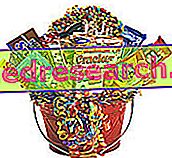
What is Exjade?
Exjade is a medical device that contains deferasirox as the active ingredient. The medicine is available in the form of white dispersible round tablets which, dissolved in a liquid such as water, form a suspension that the patient can drink. Each tablet contains 125 mg, 250 mg or 500 mg deferasirox.
What is Exjade used for?
Exjade is indicated for the treatment of a condition known as chronic iron overload (an excess of iron in the body), due to frequent blood transfusions.
- Exjade is used to reduce the amount of iron present in the body of patients (over six years of age) who suffer from an inherited disease called beta thalassemia major, for whose treatment they must undergo frequent blood transfusions. Patients with beta thalassemia major are unable to produce a sufficient amount of hemoglobin (the protein found in red blood cells that carries oxygen in the body) and therefore require frequent blood transfusions. "Frequent transfusions" means at least 7 ml of concentrated red blood cells per kilogram of body weight in a month.
- Exjade is also indicated when therapy with deferoxamine (another medicine used to treat chronic iron overload) is contraindicated or inadequate in patients suffering from other types of anemia, children aged between two and five years and patients with beta thalassemia majors who receive infrequent transfusions.
Since the number of patients suffering from chronic iron overload is low, the disease is considered rare. Exjade was designated an "orphan medicine" (a medicine used in rare diseases) on 13 March 2002.
The medicine can only be obtained with a prescription.
How is Exjade used?
Exjade treatment should be started and maintained by physicians experienced in the treatment of chronic iron overload due to frequent blood transfusions. Only patients who do not have renal dysfunction may be treated with Exjade. Treatment begins after transfusion to the patient of approximately 100 ml of concentrated red blood cells for each kilogram of body weight or when signs of iron overload are present (ie when ferritin levels
serum, the protein that stores iron, exceeds 1 mg per liter). Treatment normally starts with a dose of 20 mg per kilogram of body weight. Depending on the patient's transfusions, initial doses of 10 mg or 30 mg / kg can also be used. These doses are subsequently adjusted, if necessary, every three to six months, depending on the patient's response.
Exjade must be taken every day, preferably at the same time, on an empty stomach (at least 30 minutes before a meal). The number of tablets of each concentration making up the dose is calculated based on the patient's body weight. The tablets are dissolved by mixing them in a glass of water or fruit juice to obtain a suspension that the patient can drink.
How does Exjade work?
When patients receive repeated transfusions to treat anemia, transfused red blood cells bring iron into the body. The body, however, does not have a natural way to remove excess iron, which therefore tends to accumulate and, over time, can damage important organs such as the heart or liver. The active ingredient in Exjade, deferasirox, is an "iron chelator". It binds to the iron present in the body to form a compound, called "chelate", which can be excreted by the body, mainly through the faeces. This helps correct iron overload and prevent damage due to excess iron.
What studies have been carried out on Exjade?
The effects of Exjade have been tested in experimental models before being studied in humans. The main efficacy study compared Exjade with deferoxamine in 591 patients with beta thalassemia major (of which about half were under the age of 16 and 56 were under the age of six). In the study both the doctor and the patient were aware of the medicine used. This is because, while Exjade is administered orally, deferoxamine is taken by subcutaneous infusion (an injection done very slowly under the skin) throughout the night. Efficacy was measured by looking at the levels of iron in the liver before and after a year of treatment with medicines.
An additional study looked at the effectiveness of Exjade in 184 patients who could not be treated with deferoxamine, including patients with beta thalassemia major and other types of anemia.
What benefit has Exjade shown during the studies?
At the end of the main study, 53% of patients who received Exjade showed a sufficient response to treatment, compared to 66% of patients treated with deferoxamine. This means that Exjade may not have been as effective as the comparator medicine. Nevertheless, considering the 381 patients who had particularly high levels of iron in the liver at the start of the study and who received comparable amounts of Exjade or deferoxamine, both medicines were effective. In this study, patients under the age of six were too few to demonstrate the safety and efficacy of Exjade in this age group.
In the additional study, over half of the patients who could not be treated with deferoxamine had responded to treatment with Exjade after one year, including patients aged between two and five years.
What are the risks associated with Exjade?
The most common side effect of Exjade (seen in more than 1 patient in 10) is an increase in blood creatinine (a marker of kidney problems). For the full list of all side effects reported with Exjade, see the Package Leaflet.
Exjade is contraindicated in people who are hypersensitive (allergic) to deferasirox or any other excipient and in people with a creatinine clearance (a measure of the kidney's ability to expel blood creatinine) less than 60 ml per minute. It must not be used in combination with other iron chelators.
It is very important that the renal and hepatic functions of the patients are checked with blood tests before the start of treatment with Exjade and regularly, during treatment with the medicine. The dose should be risotto or treatment stopped if the patient develops kidney or liver disease. Exjade is contraindicated in people with severe liver disease, as it has not been tested on such patients.
Why has Exjade been approved?
The Committee for Medicinal Products for Human Use (CHMP) concluded that the benefits of Exjade outweigh the risks in the treatment of chronic iron overload due to frequent blood transfusions in patients with beta thalassemia major. In patients receiving less frequent transfusions, Exjade is an alternative to deferoxamine, when it cannot be used or is inadequate. The Committee therefore recommended the granting of the marketing authorization for this medicinal product.
What measures are being taken to ensure the safe use of Exjade?
The company responsible for supplying Exjade is required to prepare a dossier for doctors, to be distributed at the time of marketing, to ensure that, at the time of prescribing the medicine, they are aware of the need to monitor the patient's health, particularly way kidney function. The company will also prepare a similar file for patients.
More information on Exjade
On 28 August 2006, the European Commission granted a marketing authorization valid throughout the European Union for Exjade to Novartis Europharm Limited.
The summary of the opinion of the Committee for Orphan Medicinal Products on Exjade is available here.
For the full version of the evaluation (EPAR) of Exjade, click here.
Last update of this summary: 08-2008.



